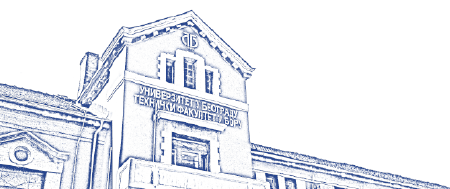Metallurgical engineering
The continuous education in the field of metallurgy at the Technical Faculty in Bor has existed since 1961, which is validated by the number of nearly 1,000 graduated students, 50 students with a degree Master of Science and more than 50 engineers with a Doctor of Technical Sciences degree, which are recognized and respected in the professional and scientific sense on national and international level. The undergraduate program in Metallurgical Engineering offers two modules (profiles):
- Metallurgical Engineering module
- Process Metallurgy module

The graduate academic studies – master and doctoral studies for Metallurgical Engineering do not offer modules. Students can choose between elective courses according to their interests. For more than five decades, the Metallurgical Engineering Department has conducted, in addition to teaching, the scientific research. The research activities are primarily focused on the developing of the new technologies, as well as the improving of the existing ones in the field of the Extractive and Process Metallurgy. The members of the Metallurgical Engineering Department have managed and led a large number of the successfully applied scientific and research projects of national and international importance, performed numerous studies and surveys for the clients from industry and state funds, and participated in various audits and reviews of other projects. As a result of the scientific research, a large number of papers in the international journals with impact factor (journals on the SCI list), other international journals and national journals, have been published. Also, numerous presentations at the conferences of international and national importance have been presented, along with a significant number of citations, according to SCI list. All these facts indicate the high competence and expertise of the teachers at the Metallurgical Engineering Department.
Research fields of the Metallurgical Engineering Department are:
- Technological minimization of the concentration of harmful impurities emission in metallurgy
- Environmental treatment of materials with high content of toxic impurities in metallurgy
- Metals recycling technologies
- The biosorption using natural adsorbents as a possibility for substituting the commercial adsorbents in wastewater treatment, metal removal and recovery from wastewaters
- Environmental monitoring of different wastewater streams around copper smelter which operates in the town where the Technical faculty is located (Bor, Serbia); characterization of this wastewaters and investigating their influence on the environment
- Lead-free, cadmium-free and mercury-free alloys & other green metallic materials design
- Microstructural investigation of almost all metal based materials. The analysis includes: preparation of the samples, investigating the samples on optical microscope and obtaining the microphotographs using the digital camera
- SEM – EDS analysis
- DSC-DTA-TGA analysis
- DXF analysis
- Mechanical testing using: Vickers hardness tester, Brinell hardness tester, Rockwell hardness tester, Universal testing machine, and Microhardness testing machine
- Powder metallurgy as energy-efficient, eco- and economically friendly technology
- Characterization of metal powders, green compacts and samples obtained by powder metallurgy technique
- Thermomechanical treatment in metal processing and materials science
- Kinetic analysis and mathematical modelling of metallurgical processes Modelling of metallurgical processes and use of simulation techniques (optimization methods including linear and non-linear statistics)
- Chemical-thermal treatments of metals, boroning of metal based materials
- Thermomechanical treatment of alloys for increasing some properties
- Environment friendly, non-toxic, biodegradable corrosion inhibitors, especially those based on natural extracts from different kinds of herbs or trees growing in our geographic area
- Using of thermovision in the thermographic diagnostics of trees, buildings, thermal characteristics of refractory materials and materials for civil engineering
- Synthesis and characterisation of active materials for solar cells. Emphasis should be on electrochemical synthesis of nanostructured semiconducting materials (films and powders)
- Electrochemistry of sulphide minerals
- Electrorefining and electrowinning of metals from water solutions
- Survey of the relevant literature (Scopus, Science Direct, Kobson) in the field of interest for both parties
- Help in writing papers which will be published in distinguished journals with impact factor

Study program : Metallurgical Engineering
Undergraduate Academic Studies (1st level of the academic studies)
- Curriculum
- Book of courses
- Book of lecturers
Master Academic Studies (2nd level of the academic studies)
- Curriculum
- Book of courses
- Book of lecturers
Doctoral Academic Studies (3rd level of the academic studies)
Studies and curriculums
Metallurgical engineering (1st, 2nd and 3rd level of studies continued from 1961)
